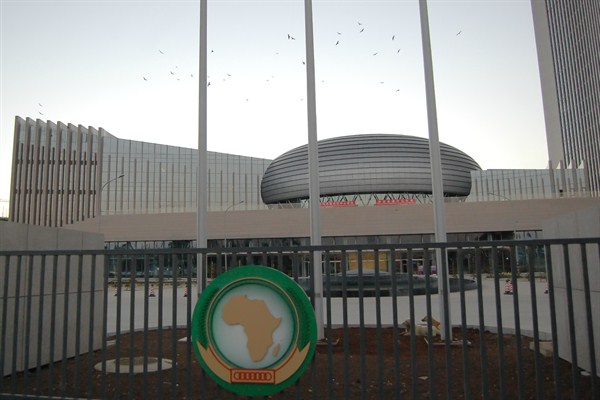The opening session of last month’s African Union (AU) summit in Equatorial Guinea featured a debut speech from a newly elected African leader: Abdel-Fattah el-Sisi, president of Egypt. Less than a year ago, the African bloc had suspended Egypt’s membership in response to the ouster of former President Mohammed Morsi by el-Sisi, then head of the armed forces and minister of defense.
The African Union was the only major international actor to formally sanction Egypt after Morsi’s overthrow. Its decision was hailed by observers as a sign that the organization was capable of taking a principled stance and applying sanctions to all its members, even the most powerful.
But last month, the suspension was lifted, and just over a week later, el-Sisi himself, now a civilian and an elected head of state, received a friendly reception in Malabo. “We warmly welcome the delegation of Egypt, our dear brothers and sisters, back home,” the chairperson of the AU Commission, Nkosazana Dlamini-Zuma, said.

